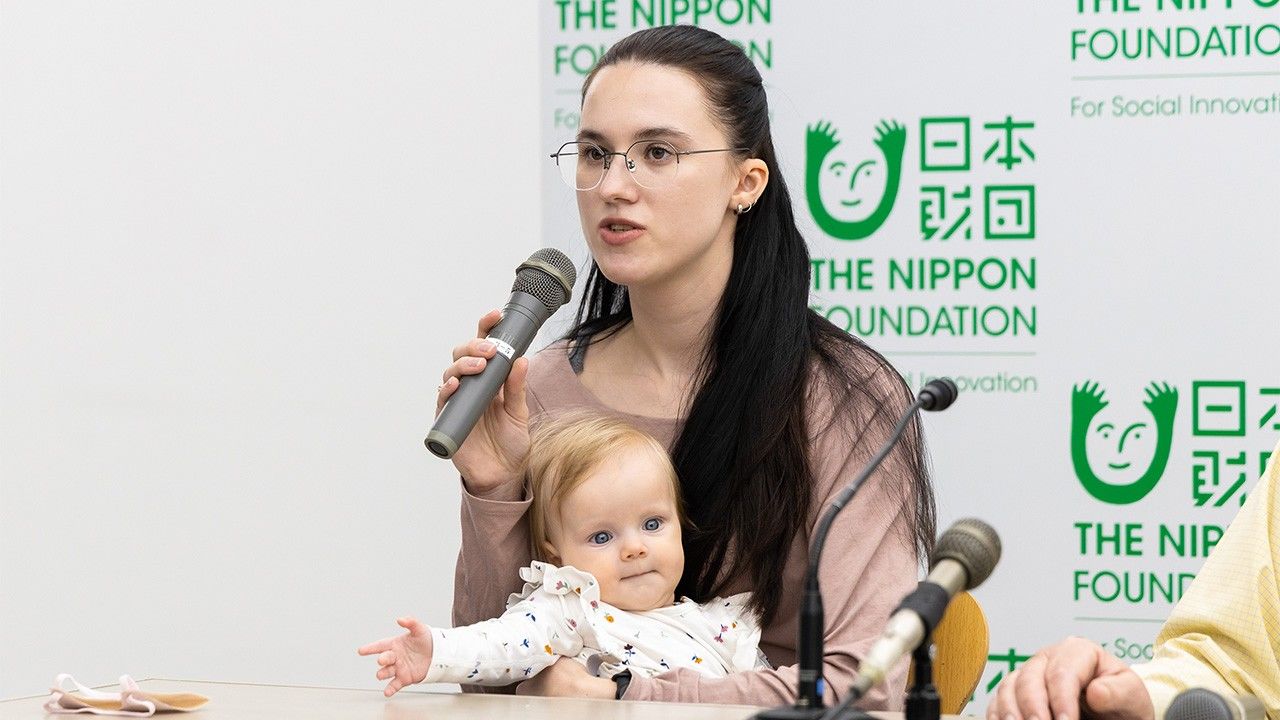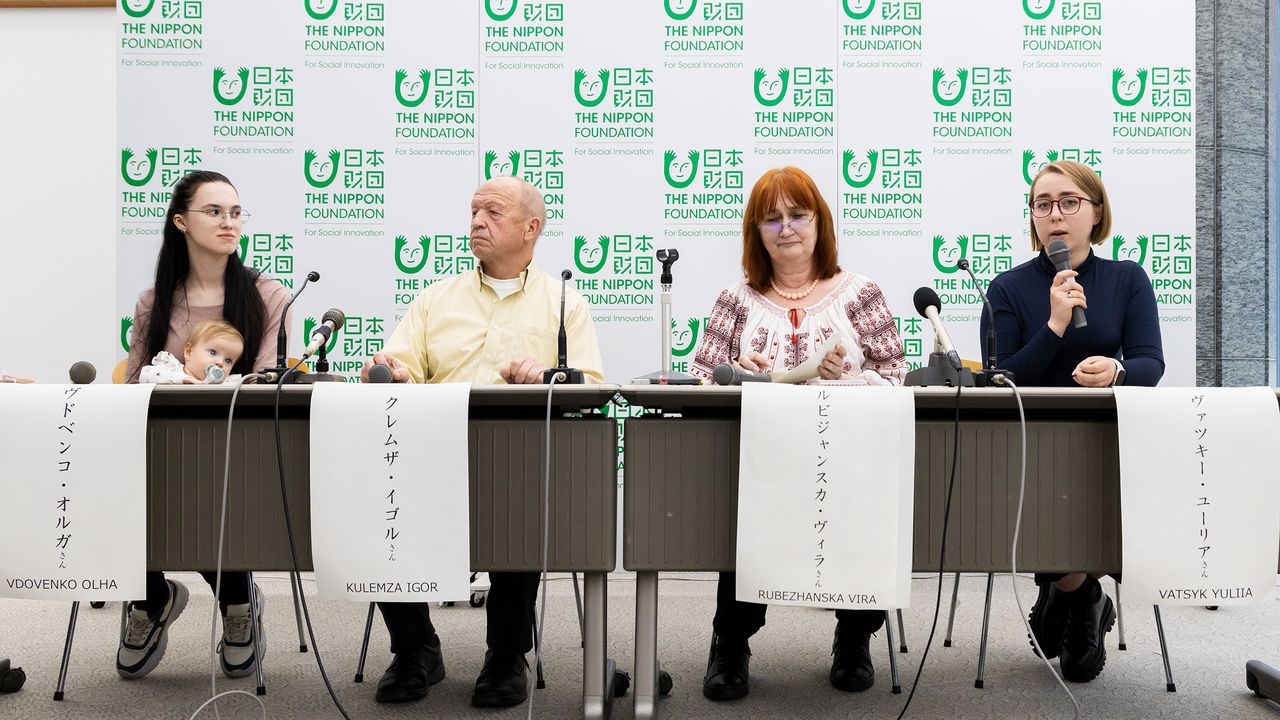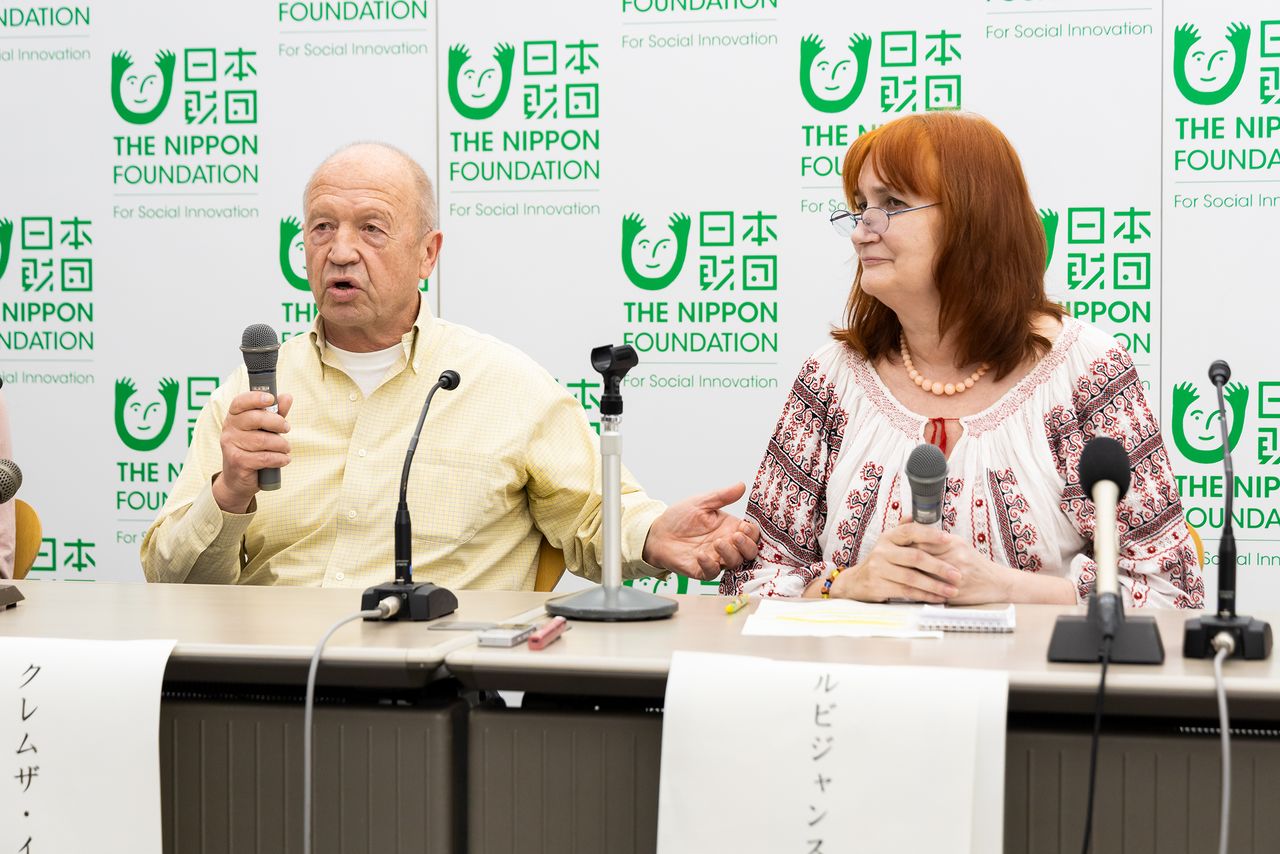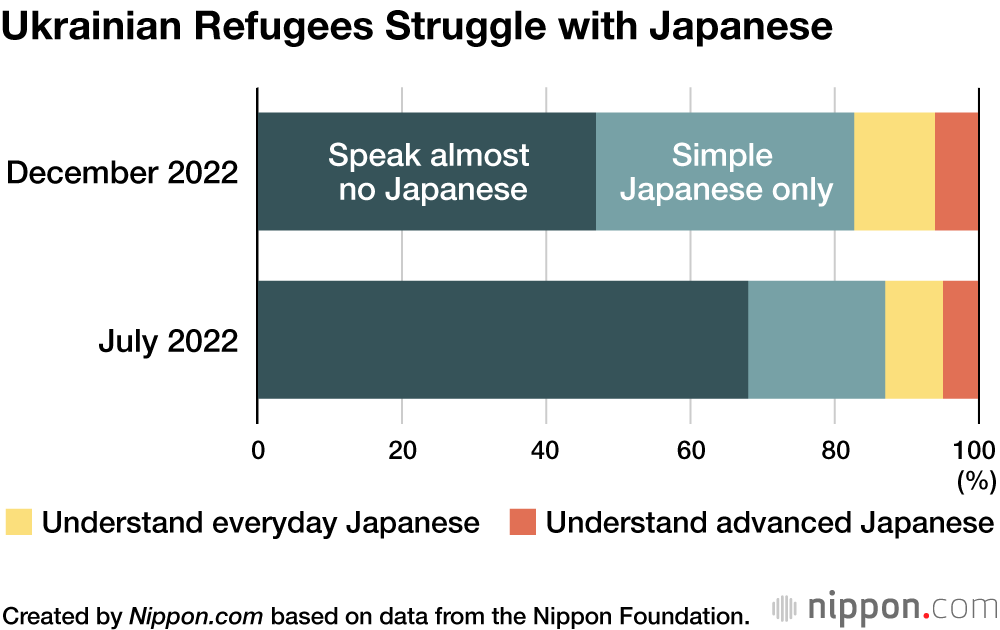
Language a Barrier for Ukrainian Refugees in Japan
Global Exchange Politics Society- English
- 日本語
- 简体字
- 繁體字
- Français
- Español
- العربية
- Русский
One year into Russia’s invasion of Ukraine, while most Ukrainian men remain to defend the country, a large number of refugees have fled. At one time numbering 15 million, most of these refugees are women, children, and the elderly. Japan has so far accepted around 2,300.
Surveys conducted by the Nippon Foundation—an organization that meets the travel and living expenses of Ukrainian refugees—revealed that many find the language a barrier, and are unable to communicate adequately with Japanese people. There was some improvement between the time of the first survey in July 2022 and a later survey in December, as the proportion of respondents who said they spoke almost no Japanese decreased from 68% to 47% while the number who said they understood only simple Japanese increased. However, over 80% of survey respondents continue to struggle with everyday conversation.
On February 20, four Ukrainian refugees discussed the matter at Nippon Foundation headquarters.
Olha Vdovenko travelled to Japan in March 2022 while six months pregnant, accompanied by her mother-in-law and three-year-old son. Vdovenko, who gave birth to a baby girl in July, says that while she speaks English fluently, Japanese was a completely unknown language to her and is therefore difficult.
“I can only have extremely simple conversations with Japanese people, so I only use Japanese in shops, and at the hospital and day care,” she said.
Vdovenko takes her baby with her to two Japanese lessons per week in addition to studying independently.

Ukrainian refugees talk about life in Japan.
Yuliia Vatsyk, who arrived in Japan in October and studies at Tsukuba University, says that because Japanese is not a European language, Ukrainian learners do not get hints from associations. Learning basic vocabulary is difficult, and kanji also take time and effort to learn.
“I learned in my studies to say sumimasen when apologizing, but a Japanese friend told me that I could use gomen in casual situations,” she explains.
As a student, she can be more flexible, so Vatsyk has established a club at her university for people who want to watch Japanese animations with English subtitles.

Yuliia Vatsyk studies at Tsukuba University.
Igor Kulemza and Vira Rubezhanska had both been enjoying their retirement before they fled to Japan in May to join their daughter. Kulemza says that while he attended Japanese classes provided by the local municipality, there was a lot that he did not understand. For the over sixties, learning a new language is not easy.
Rubezhanska said that despite these challenges, she wants to become able to communicate in Japanese. She also said that once the war is over, she wants to return to Ukraine and tell her family about the support she received and the hospitality she experienced in Japan.

Igor Kulemza and his wife Vira Rubezhanska.
The Nippon Foundation says its focus has now shifted from the provision of urgent aid in 2022 to supporting long-term residents in 2023. The Foundation will provide 100 Ukrainians with scholarships worth up to ¥1 million per year for up to two years to attend language schools, in order to enable them to leverage their existing experience and skills to obtain full-time employment and become economically independent. Applications for scholarships open on March 1.
(Translated from Japanese. Banner photo: Olha Udovenko with her daughter Bohdana. All photos © Nippon.com.)
